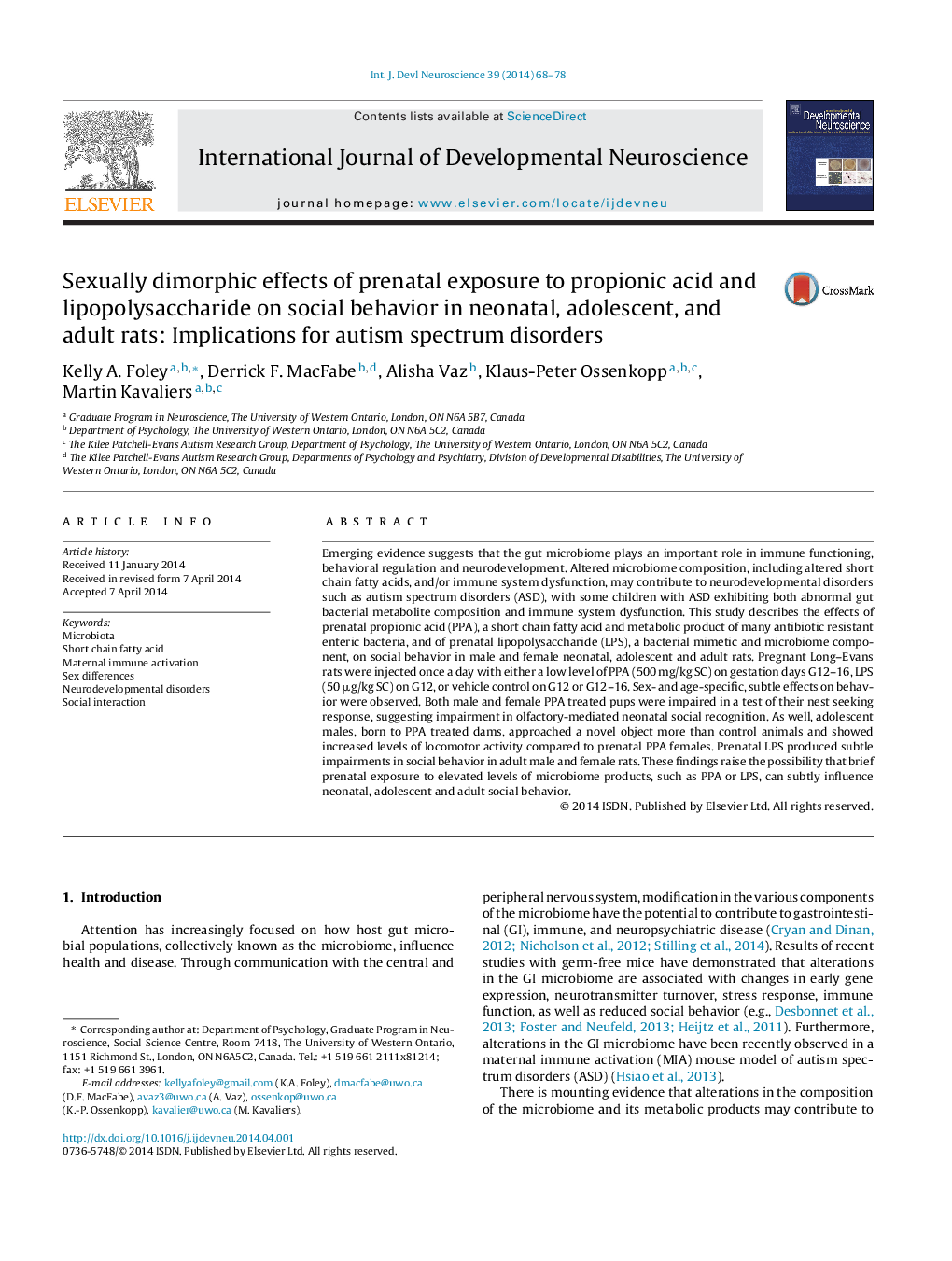| Article ID | Journal | Published Year | Pages | File Type |
|---|---|---|---|---|
| 2785897 | International Journal of Developmental Neuroscience | 2014 | 11 Pages |
•Metabolic byproducts of gut bacteria may alter brain and behavior of rodents.•Prenatal PPA and LPS treatment effects on rat social behavior were examined.•Prenatal PPA, not LPS, impaired nest seeking response in male and female rat pups.•Prenatal PPA did not affect paired social interaction in adolescent or adult rats.•A low dose of prenatal LPS decreased the probability of defense in adult rats.
Emerging evidence suggests that the gut microbiome plays an important role in immune functioning, behavioral regulation and neurodevelopment. Altered microbiome composition, including altered short chain fatty acids, and/or immune system dysfunction, may contribute to neurodevelopmental disorders such as autism spectrum disorders (ASD), with some children with ASD exhibiting both abnormal gut bacterial metabolite composition and immune system dysfunction. This study describes the effects of prenatal propionic acid (PPA), a short chain fatty acid and metabolic product of many antibiotic resistant enteric bacteria, and of prenatal lipopolysaccharide (LPS), a bacterial mimetic and microbiome component, on social behavior in male and female neonatal, adolescent and adult rats. Pregnant Long–Evans rats were injected once a day with either a low level of PPA (500 mg/kg SC) on gestation days G12–16, LPS (50 μg/kg SC) on G12, or vehicle control on G12 or G12–16. Sex- and age-specific, subtle effects on behavior were observed. Both male and female PPA treated pups were impaired in a test of their nest seeking response, suggesting impairment in olfactory-mediated neonatal social recognition. As well, adolescent males, born to PPA treated dams, approached a novel object more than control animals and showed increased levels of locomotor activity compared to prenatal PPA females. Prenatal LPS produced subtle impairments in social behavior in adult male and female rats. These findings raise the possibility that brief prenatal exposure to elevated levels of microbiome products, such as PPA or LPS, can subtly influence neonatal, adolescent and adult social behavior.
